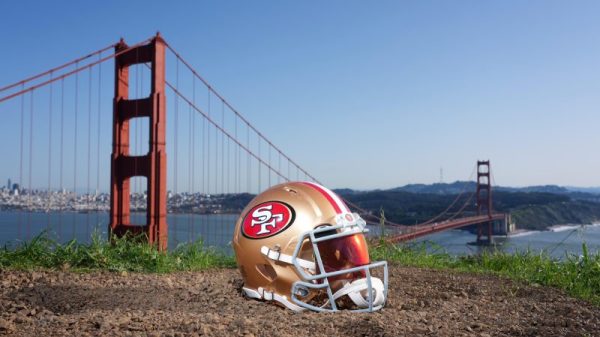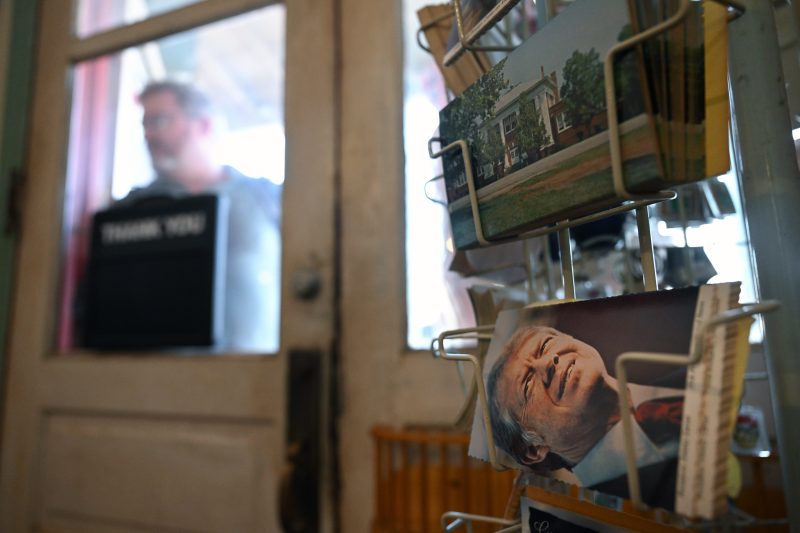Although Jimmy Carter left the White House in one of the biggest landslides of the modern American era, tributes poured onto social media moments after the Carter Center announced that he would receive hospice care. The oldest-living former president elicited praise often reserved for public figures who have already died, but the attention focused more on what he did after his presidency than during it.
Carter, 98, is not the first president to be memorialized while still alive, but the evolution of his legacy is unusual because he had such a long period between the end of his unpopular presidency and Saturday’s announcement that he would end several hospital stays and spend his final days at his Plains, Ga., home.
“Between the time he left office and entered hospice care, he got to sit back and enjoy the adulation of a grateful nation,” said Jeffrey A. Engel, the director for the presidential history center at Southern Methodist University.
Historians said Carter, a Democrat, was unique because he had the most time of any man who led the United States. (His 42-plus years are more than a decade longer than Herbert Hoover’s post-presidency.) And he built his image from extreme unpopularity into a legacy that includes a Nobel Peace Prize and a dedication to charitable work.
In 1980, Carter ran for reelection amid high prices of gasoline and other consumer goods and the Iran hostage crisis, biographer Jonathan Alter wrote. Ronald Reagan defeated him in 44 states, ensuring that Carter would be the first elected president to be refused a second term since 1932.
The rehabilitation of Carter’s political and public image began later.
“The passage of time smoothed out the rough edges of his political career,” said Engel. “If Carter had died in 1982, there would be less adulations than he is receiving right now.”
Joseph Crespino, the Jimmy Carter Professor of History at Emory University, called his resilience “remarkable.”
“Instead of sulking about not winning the second term, he used his influence and prominence from his position in politics to help millions of people and win the Nobel Peace Prize,” Crespino said.
“I can’t think of any other president who lived long enough to see their legacy while they’re still alive,” Crespino told The Washington Post. “That he is being instantly memorialized in this way is a testament to his extraordinary legacy as a peacemaker, as well as a sign of the times we live in where millions around the world can immediately share how they feel.”
Carter was awarded the Nobel Peace Prize in 2002 for his peace negotiations between Israel and Egypt, campaigning for human rights and working for social welfare during and after his presidency.
One of the first to respond to Saturday’s hospice announcement was the Secret Service, which has been ensuring Carter’s safety for 46 years.
“Rest easy Mr. President. We will be forever by your side,” said Anthony Guglielmi, the spokesman for the Secret Service, via Twitter.
Civil rights leaders also lauded Carter.
“Former President Carter’s love and compassion for all people set him apart as a leader, servant, and simply a great man striving to achieve a Beloved Community,” said Bernice King, lawyer, minister, and daughter of the Rev. Martin Luther King Jr. and Coretta Scott King.
Over the weekend, people have shared how the Carter Center, which he founded alongside former first lady Rosalynn Carter with the goal of promoting health and peace worldwide, has made leaps and bounds in its mission to eradicate the Guinea worm disease. They’ve also praised Carter’s decades-long work with Habitat for Humanity, a nonprofit organization focused on affordable housing.
Journalist Mike Sington shared a memory of when Carter flew commercial and took the time to greet every passenger.
President Jimmy Carter flies commercial, greets every passenger on the flight. pic.twitter.com/xX8DIsMUZz
— Mike Sington (@MikeSington) February 18, 2023
Such pre-death memorialization of presidents is not new, but Michael Johnson, a historian at Johns Hopkins University, said few presidents “get a public preview of their place in American hearts.”
The nation’s first commander in chief, though, was most celebrated during his lifetime.
“The gold standard for tributes was George Washington,” Johnson told The Post. “He was more or less deified before he died, as well as afterward.”
Crespino, the Emory professor, said that while Washington was eulogized while he was alive, a comparison to Carter may not hold because Washington was the nation’s first president and a hero of the Revolutionary War, while the 39th president has faced numerous detractors throughout his life, especially during his presidency that ended in a landslide.
Not everyone praises Carter’s legacy. Matt Stoller, director of research at the American Economic Liberties Project, argues that Carter’s tenure in the White House hurt organized labor and ushered in a period of wealth consolidation among an ever smaller subset of society.
“Fundamentally, Jimmy Carter ended the New Deal and started America on the path of pushing wealth and power upward, a path dramatically accelerated by his successors,” said Stoller, author of “Goliath: The 100-Year War Between Monopoly Power and Democracy.”
“As just one simple example, one reason Americans today can’t sue airlines for consumer protection or safety violations is airline deregulation, passed in 1978 and signed by Jimmy Carter,” Stoller said. “Carter cut capital gains taxes in 1978, and under the term ‘deregulation,’ removed public rules from the banking, telecommunications, railroad, trucking, natural gas and airline industries.”
As Carter nears the end of his long life, many of the social media tributes for the former president have focused on his faith.
When Carter, who taught at Maranatha Baptist Church for decades, was diagnosed in 2015 with a form of melanoma that spread to his brain he told reporters at a news conference that he was “surprisingly at ease,” with the thought that he had only a few weeks left. Months later, he was cancer free.
“I’ve had an exciting and adventurous and gratifying existence,” he said.
Deanna Paul and John Wagner contributed to this report.



























